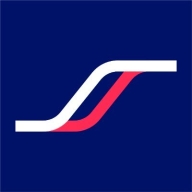

SonarQube and SOOS SCA are competitors in the code analysis and security assessment category. SonarQube has the upper hand in language support and market familiarity, while SOOS SCA excels in software composition analysis for security insights.
Features: SonarQube provides in-depth static code analysis, comprehensive support for multiple programming languages, and is suitable for organizations seeking quality code assessments. It is known for its ability to support a wide range of languages, making it ideal for diverse codebases. SOOS SCA rapidly identifies open-source vulnerabilities, efficiently tracks security issues, and focuses on precise vulnerability analysis, providing a targeted approach to open-source security challenges.
Ease of Deployment and Customer Service: SonarQube offers a stable deployment with on-premise and cloud options, supported by various customer service channels. SOOS SCA delivers a streamlined cloud-centric deployment model, promoting quick setup with intuitive client support and responsive service, highly appealing for agile environments.
Pricing and ROI: SonarQube's pricing models are flexible but may incur higher costs for on-premise deployments, with ROI reflecting long-term value for larger implementations. SOOS SCA provides competitive cloud-based pricing with lower upfront costs, offering quick ROI through effective vulnerability management.
| Product | Market Share (%) |
|---|---|
| SonarQube | 17.9% |
| SOOS SCA | 0.4% |
| Other | 81.7% |
| Company Size | Count |
|---|---|
| Small Business | 41 |
| Midsize Enterprise | 24 |
| Large Enterprise | 79 |
SonarQube provides comprehensive support for multi-language development, custom coding rules, and quality gates, integrated seamlessly into CI/CD pipelines. It empowers teams with clear insights through intuitive dashboards, identifying vulnerabilities, code smells, and technical debt.
SonarQube is renowned for its extensive capabilities in static code analysis, making it an invaluable tool for maintaining code quality. By fully integrating into development processes, it allows organizations to manage vulnerabilities and ensure compliance with coding standards. Its extensive community and open-source roots contribute to its accessibility, while robust dashboards facilitate code quality monitoring. Despite its strengths, feedback suggests enhancing analysis speed, better integration with DevOps tools, and refining the user interface. Users also point to the need for handling false positives effectively and expanding on AI-based features for dynamic code analysis.
What are SonarQube's main features?In industries like finance and healthcare, SonarQube aids in obtaining regulatory compliance through rigorous code quality assessments. It is implemented to enhance cybersecurity by identifying potential vulnerabilities, while ensuring code meets the stringent standards demanded in these fields. As part of a broader development ecosystem, its integration in CI/CD pipelines ensures smooth and efficient software delivery, catering to phases from code inception to deployment, effectively supporting large-scale and critical software applications.
SOOS SCA offers a comprehensive software composition analysis tool, focusing on open-source vulnerabilities. Its versatile features make it suitable for businesses addressing security challenges in software development.
SOOS SCA provides an efficient way to manage open-source libraries by identifying vulnerabilities and ensuring compliance with licensing standards. It offers a seamless integration into development workflows, delivering crucial insights that enhance security posture and help organizations meet compliance requirements.
What are the key features of SOOS SCA?In industries like finance and healthcare, SOOS SCA has been implemented to secure critical applications from vulnerabilities inherent to open-source dependencies. These sectors benefit from the robust compliance features and integration capabilities, ensuring both legal and security standards are consistently met.
We monitor all Application Security Tools reviews to prevent fraudulent reviews and keep review quality high. We do not post reviews by company employees or direct competitors. We validate each review for authenticity via cross-reference with LinkedIn, and personal follow-up with the reviewer when necessary.